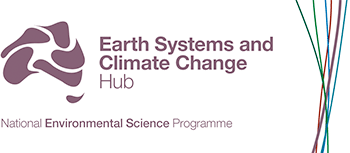The days of dealing with climate change only as an ‘environmental’ or ‘sustainability’ issue have now passed for big business.
2 July 2017
Earlier this year, the Australian Prudential Regulation Authority—which is responsible for the regulation of financial institutions, insurers and superannuation funds in Australia—announced that financial institutions will now need to consider climate risk as a financial risk, and stress test their operations.
Around the same time, global investment giant BlackRock issued a briefing paper on how they engage with companies on climate risk, one of their engagement priorities for 2017–18. In the paper, they made it clear that companies need to understand their climate risk and how to address it.
Even financial services companies Standard & Poor’s and Moody’s now factor climate risk into credit rating assessments.
The days of dealing with climate change only as an ‘environmental’ or ‘sustainability’ issue have now passed for big business. With global investment companies and national regulators alike sending a clear message about the financial significance of climate risk and their expectations about how it is acknowledged and addressed, dealing with climate change is no longer an issue for the future, but one for now.
What are the risks?
Described as ‘chronic’ and ‘acute’ by the Task Force on Climate-Related Financial Disclosures, the physical risks result from the direct impacts of our changing climate. Acute risks result from extreme events, such as floods, cyclones or severe storms, while chronic risks result from the gradual effects of climate change: rising temperature, rising sea level, changing rainfall patterns. These risks may manifest as increased production costs, disrupted supply chains, increased insurance premiums and impacts on production due to impacts on the workforce.
As policy, technology and society respond to these physical risks, markets will be driven by different pressures and influences and economic transition risks will emerge. The Paris Climate Agreement is a major market signal as the world seeks to limit warming to 1.5–2°C. A resulting move to more renewable energy sources, for example, could see investments in fossil fuels lose value, exposing businesses and investors to potentially serious losses through reduced market prices for commodities and increased liability for stranded assets.
In fact, stranded asset risk is key among economic transition risks. This risk is due to having to write off an asset before the end of its useful life due to technological obsolescence, a changing regulatory environment or the associated effects of emerging market trends imposing increasingly significant financial discounts on asset values due to reduced consumer demand and/or increased production costs.
The risks extend to legal liability for failure to mitigate, adapt or disclose climate risks. In fact, a recent analysis by the Centre for Policy Development and the Future Business Council determined that company directors who do not disclose foreseeable climate-related risks to their company or business model could be held personally liable under the Corporations Act for breaching duty of due care and diligence responsibilities.
Addressing the risks: roles for the Australian climate change science community
Companies need to understand potential climate-related risks and analyse their exposure if they are to disclose and address these risks. Science-based data and information from Australian climate researchers, including that provided by the Hub on climate variability, extremes and change over long-term (out to multi-decadal) time scales, have a clear role to play here in providing the evidence the sector needs to accurately price, report and manage climate-related risks.
The first part of this role is in the provision of data. Climate change science is continually improving both our understanding of the current climate system (for example, the Hub’s projects looking at oceans and climate change and variability) and how that is represented in climate models (as in the Hub’s project to improve ACCESS). This, in turn, improves the confidence we have in model projections of future climate.
However, we will never be able to predict the future with absolute certainty. There are too many unknowns, not least of which is how policy, technology and society will come together to influence future greenhouse emissions. That said, climate change projections provide a useful range of plausible futures that can be used to model climate-related risk.
It is also important to note that sector-related climate risk assessments, for the most part, do not need ‘perfect’ data, just the ‘right’ (fit-for-purpose) data for the job (i.e. data which meets the specific needs of the actual decisions being made within known limitations of the key decision and data parameters).
The second part of this role is making these data accessible and applicable. There is already a great deal of climate change data available, such as the national climate projections available on the Climate Change in Australia website. However, which data products to use and how to apply them to making corporate risk assessments is not always clear. Provision of climate change services—the translation of climate change data and information into useful products and services, such as the work being undertaken in the Hub’s regional climate projections project —is a growing role for the climate science community.
The Hub is committed to ongoing engagement with the Australian business and finance sector to better understand their climate change information needs and to develop tailored products and services that aid in the identification and assessment of climate-related risks. To this extent, the Hub’s Stakeholder Advisory Group is a key resource for facilitating effective and efficient engagement between the Hub’s researchers and the broad range of end-users of the Hub’s research outputs.
We welcome enquiries about how we can work together.
This article was based on presentations by Sarah Barker (Minter Ellison), Nick Wood (Climate Policy Research) and Lil Bianchi (Luscan), and a panel discussion at a seminar at CSIRO Aspendale on 27 June 2017. The seminar, Climate risk for the Australian banking and finance sector: the role of science-based evidence to inform decision-making, was jointly hosted by the National Environmental Science Programme Earth Systems and Climate Change Hub and the CSIRO Climate Science Centre.
Main image credit: Flickr/Ben Hosking, CC-BY-2.0

